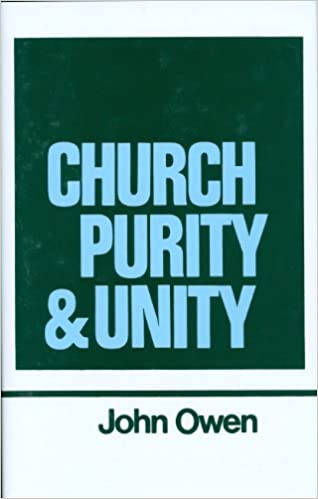A Brief Book Summary from Books At a Glance
by Steve West
Editor’s Note: Most of our readers will already be at least somewhat acquainted with John Owen (1616-1683), “the prince of Puritans,” but it is not likely that many have read him extensively. His works are not only voluminous – they are tightly packed and deeply considered. Owen is neither quick nor light reading!
Today we continue our year-long series of summaries of Owen’s famous works. We trust these will be of help in introducing and/or increasing your acquaintance with this giant Puritan theologian.
Summary, Part 2
A Discourse Concerning Evangelical Love, Church Peace, and Unity
Chapter I
Many are concerned that disputes in religion produce harm for the souls of men, and also destroy the peace of society. People cannot help but have private judgments, but disputes in religion are not to be carried out with fiery insult and invective. It is sad to see that it seems like there is not much love existing between various professors of the gospel. We must try to walk in love and forbearance towards all, and when we are attacked we must not respond with the harshness and enmity that confirms people in their negative view of our cause. In everything we must labor so that there is no reproach brought upon the truth of God. When we are reviled, we must commit ourselves to him who judges justly. There are some who are so against the spirit of the gospel that there is no point contending with them—they shall never be convinced. The aim of this work is to speak to those who truly love the gospel and want to walk in love, peace, and unity.
“The principal charge against us, and that whereinto all others are resolved, is our nonconformity unto the present constitutions of the church of England; for hence we are accused to be guilty of the want of Christian love and peaceableness, of schism, and an inclination to all sorts of divisions, contrary to the rules and precepts of the gospel.” We cannot help but observe that many are turning to nonconformity, even though doing so results in great losses of secular advantage and comfort. In evangelical terms, we cannot pursue peace alone but must pursue peace with truth. To seek peace without truth is to lay aside the authority of God. No matter what practices we adopt, there are some people who will accuse us of schism and division, and so we must do our best before God with a clear conscience to follow our judgment about what he has ordained. . . .
[To continue reading this summary, please see below....]The remainder of this article is premium content. Become a member to continue reading.
Already have an account? Sign In
